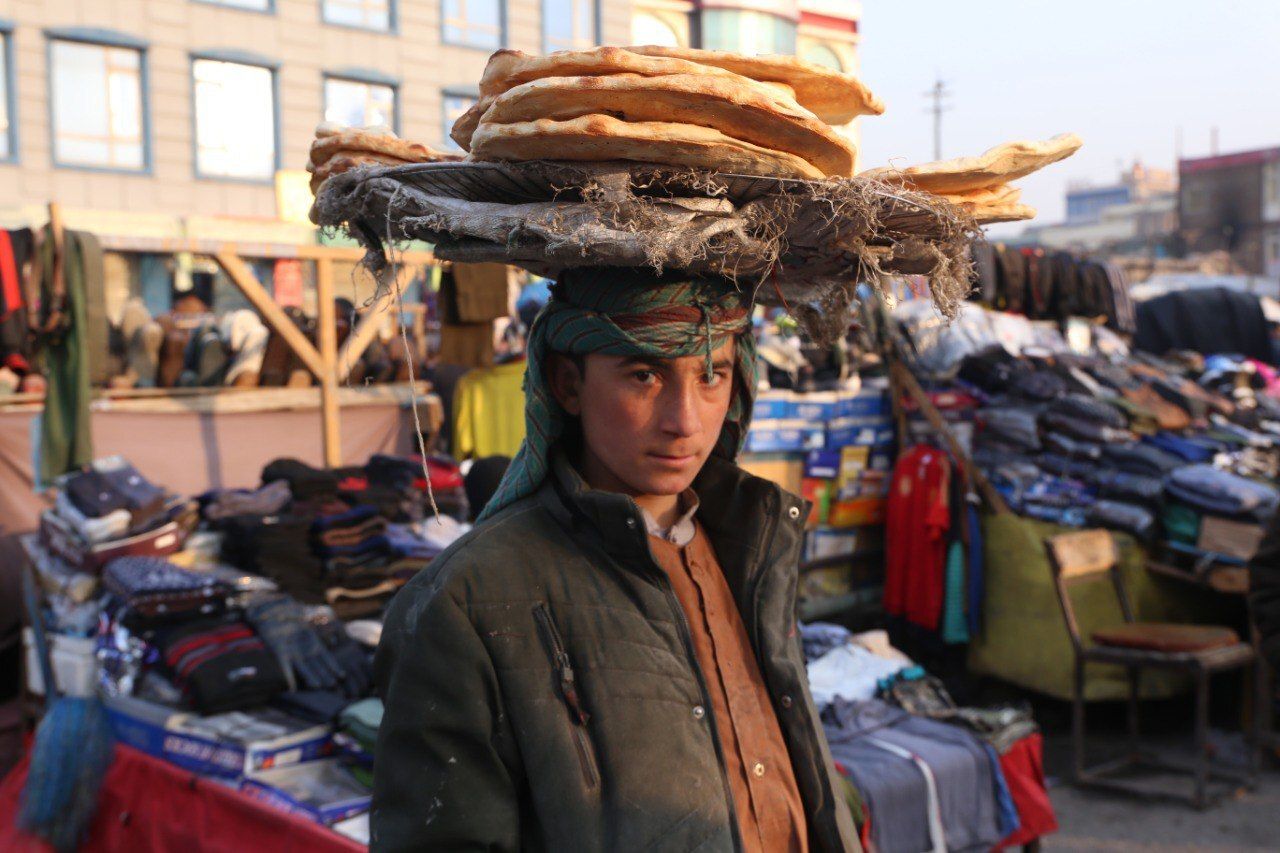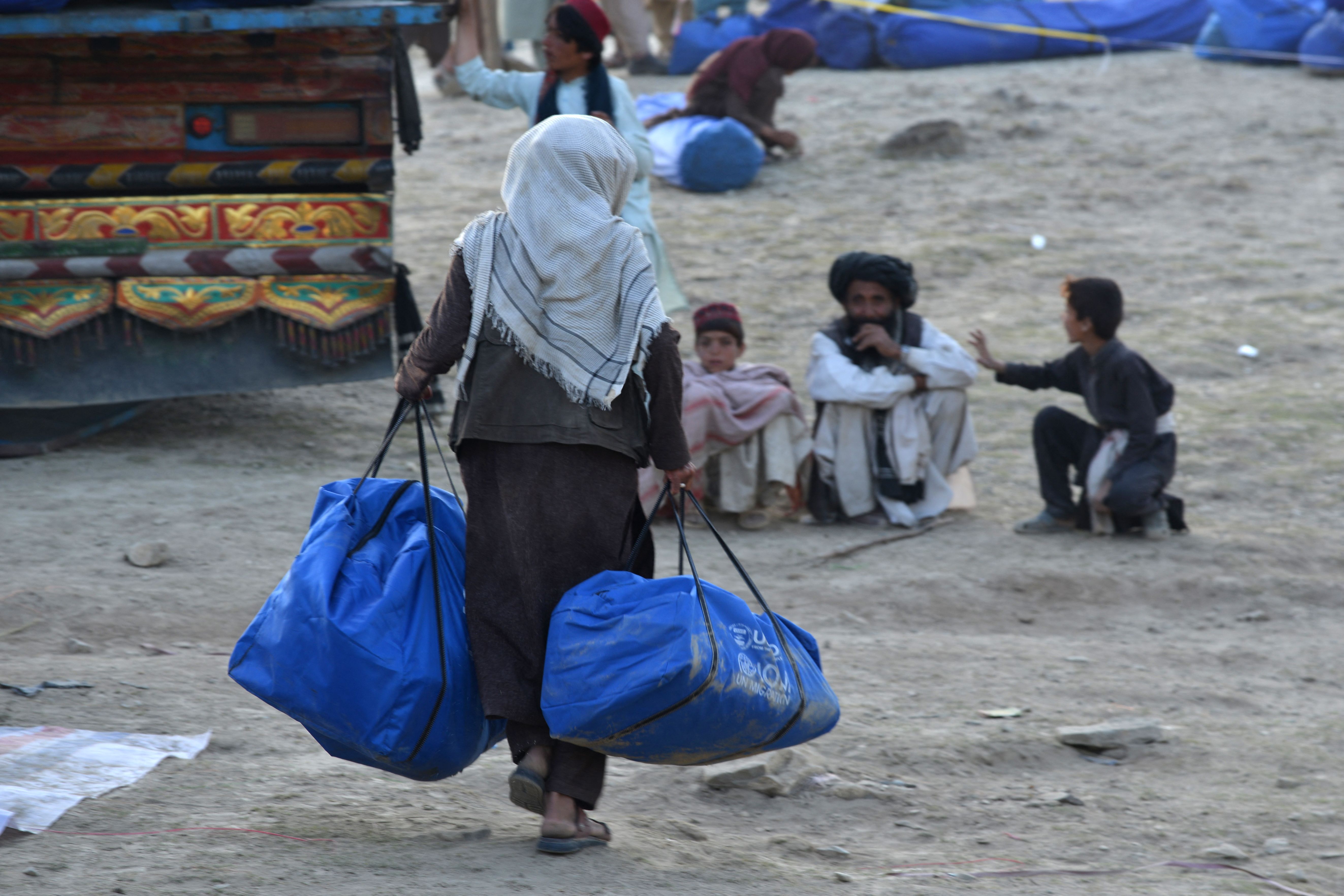One year after the U.S. withdrew and the Taliban retook control of Afghanistan, the country remains a nation in anguish.
The big picture: The Afghan people have borne the brunt of a collapsed economy, deepening humanitarian crisis and deteriorating human rights situation.
Flashback: The Taliban began retaking parts of the country as the U.S.-led coalition began its exit a year ago. By Aug. 15, 2021 — far earlier than the U.S. expected or had planned for — Kabul was back in the hands of the group that had ruled with a brutal grip in the 1990s.
- U.S. forces were left scrambling to secure the Kabul airport as they hastily worked to evacuate U.S. citizens and Afghans who had aided its efforts over the previous 20 years. An ISIS-K suicide bombing outside the airport left more than 170 Afghans and 13 U.S. troops dead.
In the year since the withdrawal, life for most of the 40 million Afghans in the country has in many ways only gotten worse.
- As of Aug. 15, 2021, "the Afghanistan we knew was gone and it wasn't going to come back," says Obaidullah Baheer, a lecturer at the American University in Kabul.
Economy in peril
Over the last year, the country's economy has imploded, Axios' Felix Salmon writes.
- The Afghan government's 2022 budget is down over 60% from its 2020 level. Prior to 2021, the country was reliant on foreign aid for 75% of public spending.
- The U.S. decision to freeze billions of dollars in foreign reserves belonging to Afghanistan's central bank has left the bank incapable of carrying out many of its essential functions.
- Additionally, sanctions on the Taliban have led many banks and other financial institutions outside of the country "to restrict or block the processing of most transactions involving Afghan bank accounts," according to Human Rights Watch.
- Basic household goods inflation is at 52% year-on-year and per capita income is down to about $375 per year, its lowest level in over a decade.

"Catastrophic" humanitarian crisis
An economy in peril, a severe drought and other factors have left about 24 million Afghans — more than half the country's population — in need of humanitarian assistance, according to the UN.
- Nearly 20 million people face acute food insecurity, and tens of thousands are facing "catastrophic" levels of hunger.
- At least 1.1 million Afghan children are expected to suffer from the most severe form of malnutrition this year.

Aid groups say their biggest challenge over the last year has not been security concerns, but a shortfall in funding compounded by the fact much of the world's attention turned to Ukraine following Russia's invasion in February.
- An aid appeal for Afghanistan at the UN in March raised just over half of the requested $4.4 billion.
- "The economic withdrawal [in Afghanstan] that followed the military withdrawal was pretty immediate," David Miliband, president of the International Rescue Committee tells Axios' Laurin-Whitney Gottbrath.
- "The plea of our staff members and their families is very simple: 'You promised not to forget us. Don't forget us,'" Miliband says.
Deteriorating human rights situation
The Taliban promised the world they had changed, especially on human rights.
- A year later, the group's promises remain largely unfilled. Schools are still closed to most girls and young women after sixth grade.
- The reasons given for the ban range from religious to cultural to technical, but "whatever it is, it's harming Afghanistan more than it is harming anyone else," Baheer says.
- Women also face several restrictions reminiscent of the crackdown on freedoms they faced during the last time the Taliban ruled.

At the same time, Taliban officials have cracked down on the media, and human rights groups have documented arbitrary arrests and summary executions of dissidents.
Meanwhile, the violence that once plagued the country has drastically been reduced, though deadly attacks and security challenges persist.
Refugees in limbo
Outside of Afghanistan, tens of thousands of Afghans have been evacuated and are piecing together new lives in the U.S., but language barriers, a housing shortage, inflation and limited pathways to permanent status have all added barriers and uncertainty, Axios' Stef Kight reports.
- Congress has introduced, but not yet passed, a bill to ensure that tens of thousands of Afghans brought to U.S. on short-term humanitarian parole will have a clear pathway to green cards.
- More than 81,000 Afghans have now been brought to the U.S. since the Taliban took control of Kabul a year ago, according to a Homeland Security Department spokesperson.
- Thousands of other Afghans remain in limbo in third-countries such as Qatar and United Arab Emirates, awaiting resettlement in the U.S.
"Hopelessness not a luxury we can afford"
- While the reality in Afghanistan is one of anguish today, Baheer says he does see some signs that with time and collective action, things could improve in the future.
- He says change will have to come from within Afghanistan, however. "When the lives of common Afghans change, the grounds for radicalism will change [and] the people's minds will change," he adds.
- Hopelessness is "not a luxury we can afford," Baheer concludes, recognizing the long road ahead. "I don't even want to admit to myself that I feel hopeless because that is the only thing we have. That is what will keep us going."







